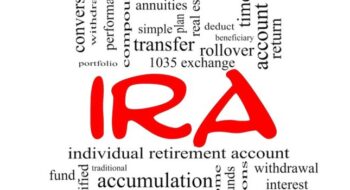Inflation is a pressing issue for all U.S. citizens, but retirees are more likely to bear the brunt. With Biden’s proposed tax hikes for the 2024 fiscal year, the financial outlook for retirees appears particularly concerning. Let’s explore the key impacts of inflation on retirees, backed by data and potential solutions.
Key Impacts of Inflation on Retirees
1. Increased Tax Rates
Biden’s proposal aims to increase tax rates for corporate, individual, and capital gains income. This ambitious plan would raise taxes to the highest rate seen in 111 years, causing significant concern among retirees.
Specifically, the proposal to raise capital gains tax to 45%—more than double the current rates of 0%, 15%, and 20%—is particularly alarming.
Although this tax hike is intended to target “greedy billionaires,” it would also affect the 12.5 million middle-class Americans who pay taxes on their retirement savings. Inflation and higher capital gains tax mean retirees could be taxed on paper gains when, in reality, they have lost money because the dollar has lost purchasing power.
2. Higher Individual and Corporate Taxes
The proposal also includes increasing the highest individual income tax bracket to 39.6% from the current 37%. Additionally, Biden’s plan to increase corporate tax to 28% from its current 21% (thanks to the Tax Cuts and Jobs Act) could impact retirees indirectly.
The Heritage Foundation found that higher corporate taxes would lead to lower wages, higher prices for necessities like groceries, and lower rates of return for savings.
3. Negative Economic Outcomes
The economic repercussions of these proposed tax hikes could be severe. According to the Tax Foundation, the higher taxes could reduce economic output by 2.2%, eliminate around 788,000 full-time jobs, and reduce wages by 1.6%.
This would complicate the tax code and make it more anti-growth, while increasing spending in ways unrelated to revenue collection.
Data Points Highlighting the Impact
- The Heritage Foundation calculated that the proposed federal budget, including $4.9 trillion in future tax hikes, would result in an additional $36,000 in taxes per family. This would impact families’ ability to save for retirement and create emergency funds amidst rising living costs.
- The increase in corporate tax could result in lower wages and higher prices for everyday essentials, making it harder for retirees to maintain their standard of living.
- The Tax Foundation estimates that the proposed tax hikes would lead to a 2.2% reduction in economic output, the loss of 788,000 full-time jobs, and a 1.6% decrease in wages.
Potential Solutions for Retirees
Despite these daunting prospects, there are steps retirees can take to manage the impacts
of inflation:
1. Stay Informed: It is crucial to stay updated on legislative developments. Since the proposal needs Congressional support to pass, monitoring its progress can help retirees prepare for potential changes.
2. Diversify Investments: Consider diversifying your investment portfolio to include assets that traditionally perform well during inflationary periods, such as real estate or commodities.
3. Adjust Budgets: Reevaluate and adjust your budget to account for potential increases in living costs and taxes. Prioritize essential expenses and explore ways to reduce discretionary spending.
4. Seek Professional Advice: Consult with a financial advisor to develop strategies tailored to your specific financial situation. An expert can provide valuable insights into managing retirement savings and investments in an inflationary environment.
5. Advocate for Change: Engage with advocacy groups or organizations that represent retirees’ interests. Collective action can amplify concerns and potentially influence legislative decisions.
Inflation and proposed tax hikes present significant challenges for retirees. Staying informed, diversifying investments, adjusting budgets, seeking professional advice, and advocating for change are critical steps in managing these impacts.
If you’re looking for personalized financial advice, consider booking a consultation with one of our IFW Financial Professionals. We’re here to help you navigate these uncertain times and secure your financial future.




